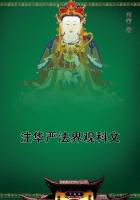This Declaration (the Four Gallican Articles) was approved by the king, who ordered that it should be observed by all teachers and professors, and should be accepted by all candidates for theological decrees. Although the Archbishop of Paris recommended warmly the acceptance of the Gallican Articles the doctors of the Sorbonne offered strong opposition to the new royal theology, so that it was only after recourse had been had to the most violent expedients that the consent of one hundred and sixty-two doctors could be obtained, while the majority against the Gallican Articles was over five hundred. The decision of the minority was published as the decision of the faculty, and steps were taken at once to remove the opponents of the articles, and to make the Sorbonne strongly Gallican in its teaching. While protests against the articles poured in from different universities and from many of the countries of Europe the Pope kept silent; but when two priests, who took part in the Assembly of 1682, were nominated for vacant bishoprics Innocent XI. refused to appoint them until they should have expressed regret for their action. The king would not permit them to do so, nor would he allow the others who were nominated to accept their appointments from the Pope, and as a result in 1688 thirty-five of the French Sees had been left without bishops.
In this same year another incident occurred that rendered the relations between the Pope and Louis XIV. even more strained. The right of asylum possessed by various ambassadors at the papal court had become a very serious abuse. Formerly it was attached only to the residence of the ambassador, but in the course of time it was extended until it included the whole of the quarter in which the embassy was situated, with the result that it became impossible for the guardians of the peace to carry out their duties. For this reason the right of asylum was suppressed by the Pope. All the other nations submitted to such a reasonable restriction, but Louis XIV., anxious rather to provoke than to avoid a quarrel, refused to abandon the privilege. He sent as his ambassador to Rome (1687) the Marquis de Lavardin, who entered Rome at the head of a force of five hundred armed men, and whose conduct from first to last was so outrageous that Innocent XI.
was obliged to excommunicate him, and to lay the Church of Saint Louis under interdict. Immediately Louis XIV. occupied Avignon and Venaissin, assembled an army in Southern France to be despatched against the Papal States, and ordered that an appeal to a future General Council should be prepared for presentation. Twenty-six of the bishops expressed their approval of this appeal, and so successful had been the dragooning of the university that nearly all the faculties adopted a similar attitude (1688).
For a time it seemed as if a schism involving the whole of the French Church was unavoidable, since neither Pope nor king seemed willing to give way. But Louis XIV. had no wish to become a second Henry VIII.
The threatening condition of affairs in Europe made it impossible for him to despatch an army against Rome. At the same time the fear of civil disturbance in France in case he rejected completely the authority of the Pope, and the danger that such a step might involve for French interests abroad kept him from taking the final plunge. He recalled the obnoxious ambassador from Rome (1689), abandoned the right of asylum as attached to the quarter of the French embassy (1690), and restored Avignon and Venaissin to the Pope. Alexander VIII. demanded the withdrawal of the royal edict of March 1683enjoining the public acceptance of the Gallican Articles. He required also a retraction from the clergy who had taken part in the Assembly, and issued a Bull denouncing the extension of the rights of the /Regalia/ and declaring the Gallican Articles null and void (1690).
Louis XIV., finding that the public opinion of the Catholic world was against him, and that a reconciliation with the Papacy would be very helpful to him in carrying out his political schemes, opened friendly negotiations with Innocent XII. In the end an agreement was arrived at, whereby the clerics who had taken part in the Assembly of 1682, having expressed their regret to the Pope for their action, were appointed to the bishoprics for which they had been nominated; while the king informed the Pope (1693) that the decrees issued by him insisting on the acceptance of the Gallican Articles, would not be enforced.
But in spite of this royal assurance, Gallicanism had still a strong hold upon France. The younger men in the Sorbonne could be relied upon to support the Articles, and the influence of writers like John de Launoy (1603-1678) and of Dupin helped to spread Gallicanism among the clergy and laymen of the rising generation. Throughout the whole controversy Bossuet had shown himself too accommodating to the crown, though at the same time he was not unfriendly to the claims of the Holy See, nor inclined to favour such extreme measures as most of his episcopal colleagues. Acting on the request of the king he prepared a defence of the Gallican Articles, which was not published till long after his death. During the eighteenth century, when the crown and the Parliament of Paris interfered constantly in all religious questions, the bishops and clergy of France had good reason to regret their defence of the so-called Gallican Liberties. The Concordat concluded by Napoleon with Pius VII. and the action taken by the Pope with the approval of Napoleon for the carrying out of the Concordat dealt a staggering blow to Gallicanism, despite the attempt made to revive it by the Organic Articles. The great body of the bishops of the nineteenth century had little sympathy with Gallican principles, which disappeared entirely after the definition of Papal Infallibility at the Vatican Council.
----------
[1] De Mouy, /L'ambassade du duc de Crequi/, 2 vols., 1893.















